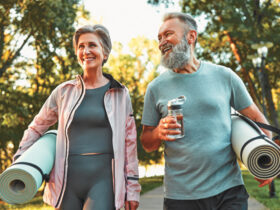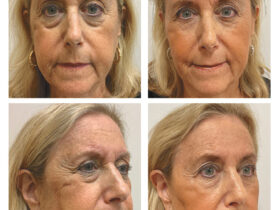By Aldo Guevara, MD and Nena Korunda, MD, FACP – Korunda Medical Institute –
 Despite progress of medical science, breast cancer continues its destructive effects in all social classes without discrimination. Cancer, no matter the type, is the most feared disease in the 21st century. It is estimated that one woman in eight will develop cancer during their lifetime. With around 290,000 new cases each year and an estimated 39,000 women dying from breast cancer this year, education concerning this disease is vital for everyone.
Despite progress of medical science, breast cancer continues its destructive effects in all social classes without discrimination. Cancer, no matter the type, is the most feared disease in the 21st century. It is estimated that one woman in eight will develop cancer during their lifetime. With around 290,000 new cases each year and an estimated 39,000 women dying from breast cancer this year, education concerning this disease is vital for everyone.
Breast cancer typically produces no symptoms when the tumor is small and most treatable. Therefore, it is very important for women to follow recommended screening guidelines for detecting breast cancer at an early stage, before symptoms develop. When breast cancer has grown to a size that can be felt, the most common physical sign is a painless lump. Sometimes breast cancer can spread to underarm lymph nodes and cause a lump or swelling, even before the original breast tumor is large enough to be felt. Less common signs and symptoms include breast pain or heaviness; persistent changes to the breast, such as swelling, thickening, or redness of the breast’s skin; and nipple abnormalities such as spontaneous discharge (especially if bloody), erosion, inversion, or tenderness. It is important to note that pain (or lack thereof) does not indicate the presence or the absence of breast cancer. Any persistent abnormality in the breast should be evaluated by a physician as soon as possible.
There is no sure way to prevent breast cancer. But there are things all women can do that might reduce their risk and help increase the odds that if cancer does occur, it is found at an early, more treatable stage.
You can lower your risk of breast cancer by changing those risk factors that are under your control. Body weight, physical activity, and diet have all been linked to breast cancer, so these might be areas where you can take action.
Regular physical activity: Physical inactivity may be relaxing, but its consequences are often deadly. Practicing as little as 1 hour and 15 minutes to 2 1/2 hours of brisk walking per week reduced the risk by 18%. In addition, exercise fights against the signs of aging. Not only is exercise able to help prevent formation of new cancer cells, but it may also kill cancer cells in their genesis. Whether you are a breast cancer survivor, at risk for developing the disease, or just want to try to prevent it, exercise is beneficial for you.
Maintain a healthy weight: Obesity (being overweight) increases the risk for numerous diseases including breast cancer. Being overweight, especially after menopause, is associated with carcinogenesis of the normal cells of the breast. This risk is higher if the extra weight is carried around the waistline.
Avoid alcohol and tobacco use: The risk of breast cancer is considerably higher with consumption of alcohol and tobacco. Even moderate consumption of alcohol and second hand smoking can increase the risk of breast cancer. In addition to breast cancer, regular consumption of alcohol and tobacco increases the likelihood of developing other forms of cancer.
Hormone therapy for post-menopause symptoms: Menopause itself is not a disease, it is a natural hormonal change in your body that often occurs after age 45; but some hormonal treatment against the symptoms of menopause can have serious effects on your health. Long-term use of hormone replacement therapy (HRT) may increase risk of breast cancer. At this time, there seem to be few strong reasons to use HRT, other than for short-term relief of menopausal symptoms. Because there are other factors to think about, you should talk with your doctor about the pros and cons of using HRT. If you and your doctor decide to try HRT for symptoms of menopause, it is usually best to use it at the lowest dose that works for you and for as short a time as possible.
Breastfeeding: Some studies have shown that breastfeeding slightly lowers breast cancer risk, especially if the breastfeeding lasts 1 to 2 years. This could be because breastfeeding lowers a woman’s total number of menstrual periods, as does pregnancy. But this has been hard to study because, in countries such as the United States, breastfeeding for this long is uncommon.
As breast cancer continues it’s destructive path, researchers remain busy discovering more about the disease and how to minimize it’s effects. Currently, there are support centers and medications aiming to eradicate the disease. Important for you is to be in good hands. Would you like to know more about breast cancer? Are you or someone you love a victim of breast cancer and need support? The physicians and staff at Korunda Medical Institute are available to answer any questions you have about breast cancer. Feel free to call the office at 239-431-6464 to discuss any health concerns you may have.
Source: American Cancer Society
Korunda Medical Institute
For appointments or further information please visit
www.korundamd.com
239-431-6464.









